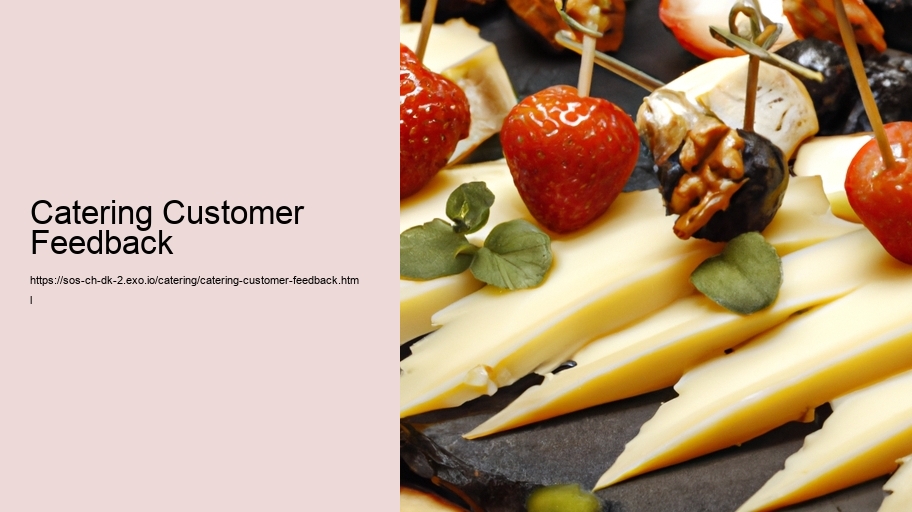Catering Customer Feedback: The Cornerstone of Culinary Success
In the bustling world of catering, the satisfaction of each client is not merely a goal but a necessity for survival and growth in a highly competitive industry. Customer feedback, therefore, becomes the cornerstone upon which a catering business can build its reputation, refine its service, and enhance its culinary offerings. This essay explores the multifaceted role of customer feedback in the catering world, its impact on business improvement, and the strategies for effectively harvesting and implementing it.
Understanding the importance of customer feedback is to recognize the basic principle of catering: to provide an exceptional dining experience that meets or exceeds client expectations. Every hors d'oeuvre served, every main dish presented, and every dessert unveiled carries with it the potential to leave a lasting impression. Feedback is the mirror that reflects the true image of the service provided, highlighting the successes and revealing the areas in need of attention.
The Power of Positive Feedback
Positive feedback is not just a pat on the back for the caterer; it is a marketing tool with immense potential. Happy clients are likely to share their experiences with friends, family, and colleagues, effectively becoming brand ambassadors. Positive testimonials, when shared on social media, websites, or through word of mouth, can attract new customers and open doors to new opportunities. Moreover, it reassures the catering team that their hard work is recognized and appreciated, which can significantly boost morale and motivate staff to maintain high standards.
Navigating Negative Feedback
Negative feedback, on the other hand, is often received with a mix of disappointment and defensiveness. However, it is an invaluable resource for improvement. It allows caterers to pinpoint specific issues, whether in food quality, presentation, or service, and take corrective action. This transparent approach to problem-solving not only helps to refine the business but also shows clients that their opinions are taken seriously and can lead to real change. Furthermore, responding to negative feedback gracefully can turn a dissatisfied customer into a loyal one when they see their concerns addressed promptly and professionally.
Collecting and Responding to Feedback
The process of collecting feedback can be as simple as a comment card at an event or as sophisticated as an online survey sent after the service is rendered. Caterers must make the process of leaving feedback as accessible and as non-intrusive as possible to encourage honest and constructive responses. It's crucial that customers feel that the time they invest in providing feedback is valued and that their input will have a tangible impact on the business.
Once feedback is received, the response should be as prompt as possible. Thanking customers for their positive comments and assuring them that their negative concerns are being addressed helps to build a relationship of trust and respect. This dialogue between caterer and client is essential for creating a loyal customer base that feels heard and valued.
Continuous Improvement
Catering customer feedback is not just about addressing one-time issues; it's about continuous improvement. By systematically analyzing feedback, caterers can identify trends and patterns that might indicate broader areas for enhancement. Perhaps it's the need for more variety in vegetarian options or a recurring issue with the timeliness of food service. By tracking feedback over time, caterers can make data-driven decisions that lead to sustained growth and improvement.
In conclusion, customer feedback in the catering industry is a powerful tool that serves multiple purposes. It acts as a guide for maintaining service excellence, a catalyst for growth and improvement, and a bridge to building lasting relationships with clients. For caterers, embracing customer feedback with an open mind and a proactive approach is not just a good business practice; it is a strategic move that can lead to culinary success and enduring client satisfaction.
